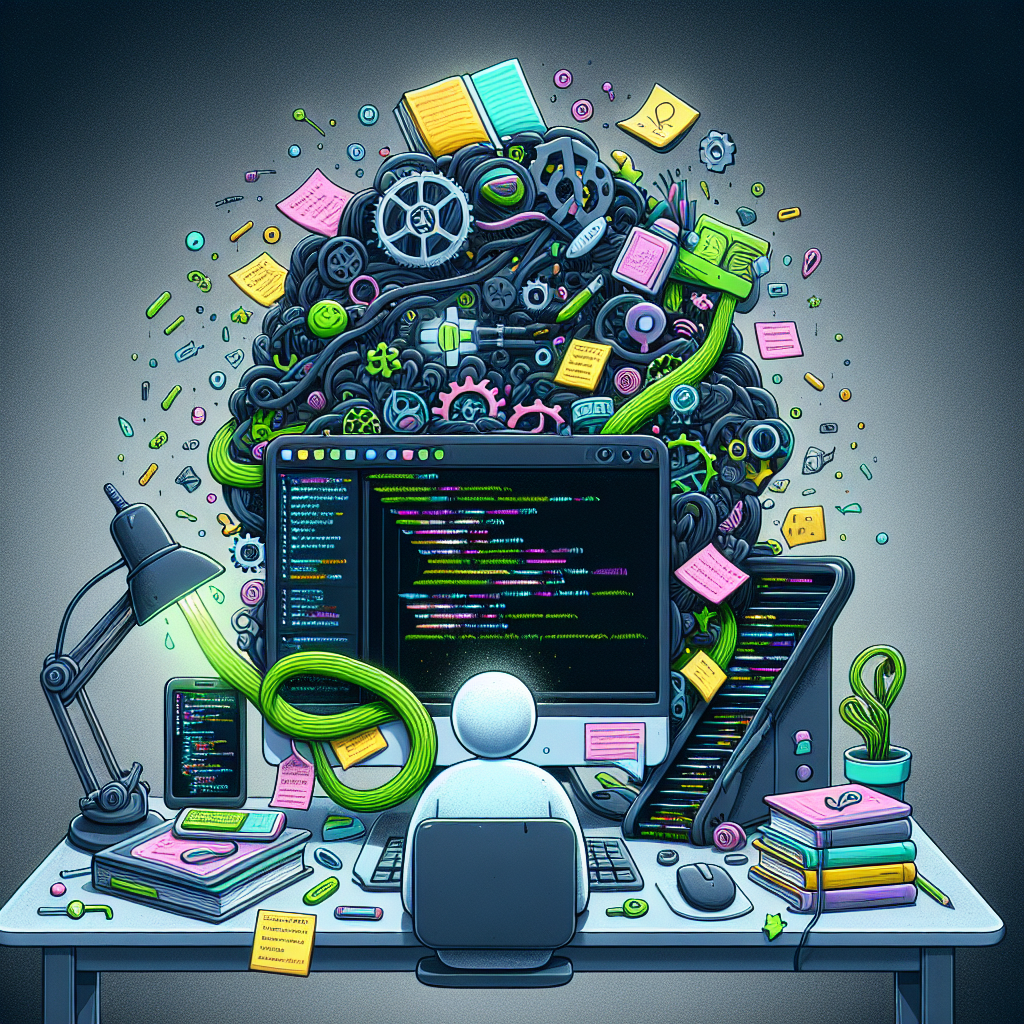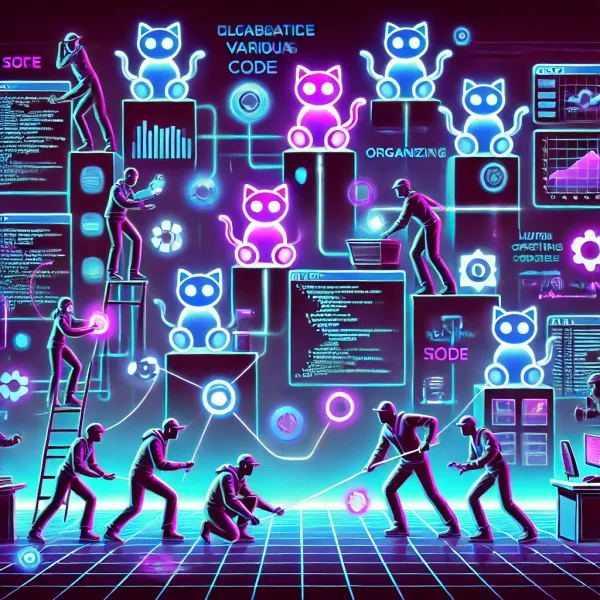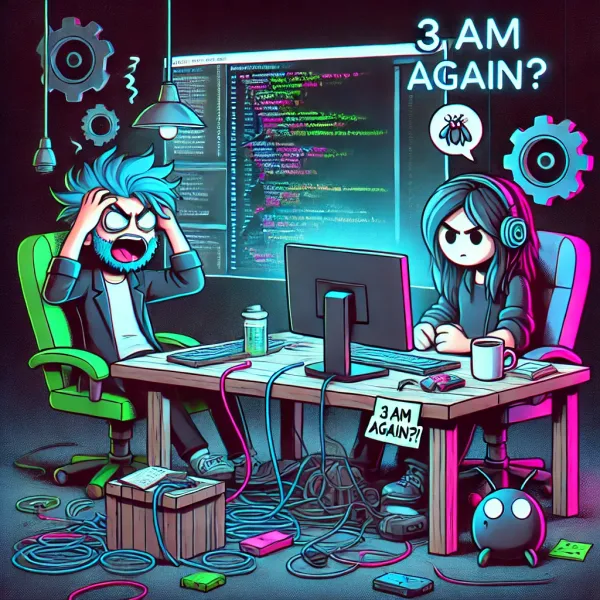Continuous Learning for Software Developers
Why you should become a continuous learner to stay relevant as a software engineer

If you’re not learning, you’re losing. Harsh? Maybe. True? Absolutely. The tech industry is a relentless beast that evolves faster than a caffeine-fueled coder at 3 AM. Continuous learning isn’t just a nice-to-have; it’s a necessity. If you want to stay relevant, keep your skills sharp, and elevate your career, you need to embrace the grind of lifelong learning. Let’s dive into why this matters and how you can do it effectively.
🔑 Key Takeaways 🔑
- Stay Relevant: The tech landscape changes constantly. Commit to learning or get left behind.
- Self-Learning is Powerful: 87% of developers taught themselves a new skill. Are you one of them?
- Professional Growth: Self-awareness about your weaknesses can lead to tremendous growth.
- Practical Experience Matters: Internships and mentorships can bridge the gap between theory and practice.
- Enhance Your Soft Skills: Learning continuously boosts your problem-solving and critical thinking abilities.
The Importance of Continuous Learning
Why does continuous learning matter? Because the tech industry is in a perpetual state of flux. New programming languages, frameworks, and methodologies pop up faster than you can say “debugging.” To keep your edge, you must stay updated with the latest trends and tools. This isn’t optional; it’s survival.
Imagine you’re a software engineer who refuses to learn anything new. One day, your team decides to shift from Java to Kotlin for a project. What happens? You’re sitting on the sidelines while your colleagues are knee-deep in code, and you’re left wondering why you didn’t invest that time in learning. Don’t let this be you. For more on navigating rapid change in tech, check out Rapid Change.
Self-Learning and Autonomy
Here’s a shocker: 87% of developers in the Stack Overflow 2018 Survey taught themselves a new programming language or technology. That’s right—self-learning is not just a trend; it’s a standard. If you think you can rely solely on formal education, you’re mistaken. The most successful software engineers are the ones who take charge of their own learning paths.
Action Steps:
- Identify a new language or technology that interests you.
- Set aside dedicated time each week for learning.
- Use online resources like tutorials, forums, or courses.
For insights on adapting new tech, check out Adapting New Tech.
Staying Current with Industry Trends
Curiosity is your best friend. The tech landscape changes faster than a speeding bullet, and to stay ahead, you need to be genuinely passionate about learning. This means diving into new programming languages, exploring emerging technologies, and keeping an eye on industry news.
You’re not just a coder; you’re a lifelong learner. Subscribe to tech newsletters, follow industry leaders on social media, and engage in online communities. The more you know, the more valuable you become. For more on changing industry trends, visit Changing Industry Trends Adaptability.
Professional Growth and Development
Continuous learning isn’t just about hard skills; it’s also tied to professional growth. Self-awareness is crucial. When you recognize your weaknesses, you’re in a prime position to seek the right training and mentorship.
If you’re not willing to learn, you’re also not willing to grow. The tech industry is unforgiving. If you want to progress in your career, take a long, hard look in the mirror and ask yourself: “Am I doing enough?” For insights on navigating unexpected obstacles, check out Unexpected Obstacles.

Practical Approaches to Continuous Learning
Now that we’ve established the “why,” let’s get into the “how.” Here are some practical ways to embrace continuous learning:
- Enroll in Courses: Look for online courses, bootcamps, or certification programs related to your field. They often come with hands-on projects that mimic real-world challenges.
- Internships: Seek out internships to gain practical experience. They offer you the chance to work on actual projects and learn from seasoned professionals.
- Find a Mentor: A mentor can be invaluable. They’ll provide insights, answer questions, and help you refine your skills. Don’t underestimate the power of guidance. For more on mentorship in a fast-paced environment, check out Fast-Paced Environment.
Integration with Other Soft Skills
Continuous learning isn’t a standalone skill. It’s intertwined with other essential soft skills like problem-solving, critical thinking, and time management. The more you learn, the better you become at tackling complex problems and managing your time effectively.
Remember: Each new skill you acquire enhances your toolkit, allowing you to approach projects with a fresh perspective. For insights on the soft skills role in adaptability, visit Soft Skills Role Adaptability.
Conclusion
In summary, embracing continuous learning is vital for your success as a software engineer. The tech landscape is unforgiving, but with a commitment to self-learning, staying current with trends, and seeking professional growth opportunities, you can not only survive but thrive.
So, what are you waiting for? Start learning today. The future of your career depends on it. Get out there and level up! For more on thriving in ambiguity, check out Thriving Ambiguity.




